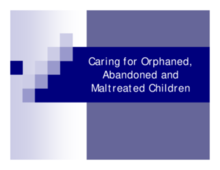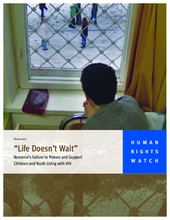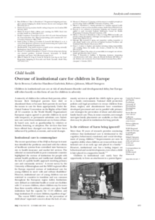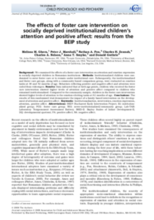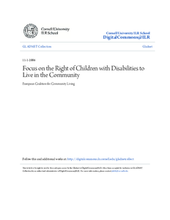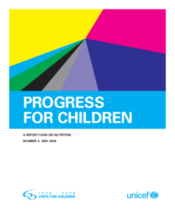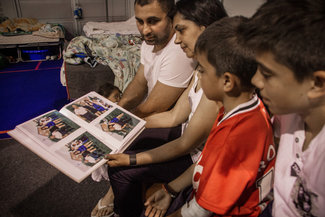

Displaying 1011 - 1020 of 1075
Addresses prevention of child maltreatment in the family through a public health approach. Identifies primary, secondary, and tertiary prevention strategies and sets proirities for action.
Provides an overview of the children-in-care situation in Croatia, then describes and evaluates the deinstitutionalization project.
A powerpoint presentation on the research findings of the Bucharest Early Intervention Project team. Includes comparisons of children raised in institutional care, vs. children placed in foster care, vs. children raised in the community.
This report by Human Rights Watch is based on field research conducted in Bacău, Bucharest, Constanţa, Giurgiu, and Ilfov counties in February 2006, and follow-up telephone and email contacts through June 2006.
This article discusses the use of institutional care for children in Europe and shows that it remains common place despite the evidence of harm for children, including attachment disorder and developmental delay.
The study examined the effects of a foster care intervention on attention and emotion expression in socially deprived children in Romanian institutions
Advocates for the right of children with disabilities to live in the community. Provides recommendations on how to ensure a successful transition from institutional to community-based care. Focuses on the importance of family support and the right to education.
Examines the transition from residential care to family-based, community care models in five European / Eurasian countries.
Evaluates global improvements in nutrition as progress towards achieving the Millenium Development Goals (MDGs). Suggests that the MDGs are attainable only with re-prioritization of efforts to reduce child undernutrition.
A website that contains statistical information on children in 27 countries across Central and Eastern Europe. The site contains relevant child protection indicators, including the number of children in institutional care.


